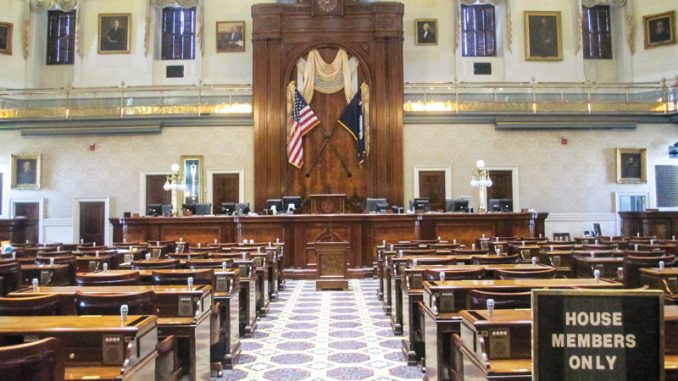
COLUMBIA—A ground-breaking bill that could lead to a ban of nearly all abortions in South Carolina was passed by the state House of Representatives on April 23. It will now appear before the state Senate, where it is expected to face serious opposition.
Dubbed the “Heartbeat Bill” by supporters, H.3020 makes it illegal for an abortion to be performed in South Carolina after a fetal heartbeat is detected, which usually occurs between the fifth and eighth weeks of pregnancy. The proposed legislation contains exceptions for rape and incest, as well as for medical emergencies, risk to the mother’s life, or risk of impairment of the physical bodily function of the mother.
The bill’s leading sponsor is Rep. John McCravy, R-Greenwood.
According to 2017 data from the South Carolina Department of Health and Environmental Control, about two-thirds of abortions in the state took place after six weeks.
The bill now is before the Senate’s medical affairs subcommittee, and will most likely remain there until the next session convenes in January 2020, according to Michael Acquilano, director of the South Carolina Catholic Conference.
Acquilano called the bill a “step in the right direction” but said the legislation faces a “very heavy lift” in the Senate, where less aggressive pro-life bills have floundered.
“We have an uphill battle, but we are in an election year and a lot of people are going to be pushing for their senators to prove that they are pro-life,” he said.
“We need people to be contacting their senators and letting them know how they feel about the pro-life issue. This bill is part of the education of the public that abortion ends a beating heart,” he continued.
South Carolina’s bill comes on the heels of similar legislation in more than a dozen states. Georgia’s Gov. Brian Kemp has signed the bill in his state that would make performing an abortion illegal once a heartbeat is detected. That new law is scheduled to take effect Jan. 1. Ohio and Mississippi have passed similar legislation, but both are expected to face litigation. Kentucky also passed a similar law, but it’s measure has been halted by the courts.
Other states have also gone forward with efforts to pass laws significantly restricting abortion. On May 1, the Alabama House passed a bill that would make it illegal for doctors to perform abortion at any stage of pregnancy, except in the case of risk to the mother’s life.
“The more that we can keep the humanity of the unborn child in front of the public, the better the chances are of regulating the abortion businesses out of business,” said Holly Gatling, president of South Carolina Citizens for Life, the state’s oldest pro-life organization.

